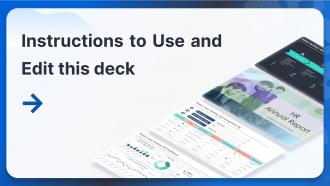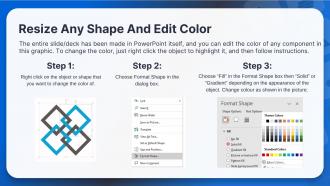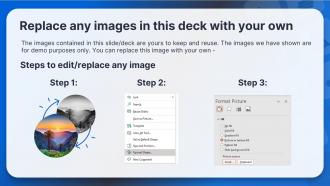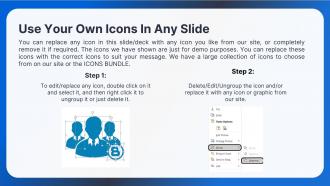Wearable Sensors Powerpoint Presentation Slides
Grab our insightfully designed template on Wearable Sensors that briefly explains digital biomarkers, their outlook, importance, market, regulatory validation processes, etc. We have incorporated an overview of digital biomarkers, including their stance, the principle of behavioral analysis, their importance, and much more. In addition, this biomarker classification deck showcases the global market size and factors affecting the market and market segmentation for them. It also includes their regulatory validation process. Also, the Digital health PPT portrays how healthcare has transformed with a digital transformation, including its benefits, impact, and application areas. It also encompasses digital biomarkers categorization and users. Furthermore, our Biomedical Informatics template caters to enhanced sensing technologies and devices used in digital biomarkers, including swear detection, insole sensing, apps predicting disease onset, portable intelligent devices, etc. Moreover, this Wearable Sensors deck contains potential use cases of digital biomarkers, various challenges, and solutions to their adoption. It also includes a comparison between traditional and digital biomarkers characteristics. Lastly, this Health Information Management PPT contains a roadmap, a timeline to develop digital biomarkers solutions, and a performance tracking dashboard. Get access now.
You must be logged in to download this presentation.
 Impress your
Impress your audience
Editable
of Time
PowerPoint presentation slides
Deliver an informational PPT on various topics by using this Wearable Sensors Powerpoint Presentation Slides. This deck focuses and implements best industry practices, thus providing a birds-eye view of the topic. Encompassed with sixty seven slides, designed using high-quality visuals and graphics, this deck is a complete package to use and download. All the slides offered in this deck are subjective to innumerable alterations, thus making you a pro at delivering and educating. You can modify the color of the graphics, background, or anything else as per your needs and requirements. It suits every business vertical because of its adaptable layout.
People who downloaded this PowerPoint presentation also viewed the following :
Content of this Powerpoint Presentation
Slide 1: This slide introduces Wearable Sensors. Commence by stating Your Company Name.
Slide 2: This slide depicts the Agenda of the presentation.
Slide 3: This slide elucidates the Table of Contents.
Slide 4: This slide highlights the Title for the Topics to be covered further.
Slide 5: This slide describes the introduction to digital biomarkers that are transforming the healthcare system.
Slide 6: This slide displays the future of digital biomarkers that will create clinical measurements inconspicuous, enabling value-based treatment and potentially anticipating illnesses.
Slide 7: This slide shows the principles of behavioral analysis using digital biomarkers.
Slide 8: This slide mentions how to separate direct digital biomarkers from indirect digital biomarkers.
Slide 9: This slide elucidates the Heading for the Contents to be discussed next.
Slide 10: This slide outlines how digital biomarkers capture clinically meaningful and objective information cost-effectively.
Slide 11: This slide represents how digital biomarkers turn the evidence creation and validation process into a closed loop in case of continuous blood pressure.
Slide 12: This slide talks about how combining digital biomarkers allow for identifying phenotypic characteristics that can better explain human health and illness variation.
Slide 13: This slide portrays the Title for the Ideas to be covered further.
Slide 14: This slide represents the global market size of the digital biomarkers from the year 2022 to 2028.
Slide 15: This slide deals with the factors affecting the digital biomarkers market.
Slide 16: This slide outlines the market segmentation for digital biomarkers including sleep and movement, cardiovascular, mood and behavior, pain management, etc.
Slide 17: This slide contains the Heading for the Topics to be discussed next.
Slide 18: This slide represents the process of regulatory validation for digital biomarkers with known measurements and known insights and novel measurements and novel insights.
Slide 19: This slide indicates the features of precision neurology technology which is a new gold standard.
Slide 20: This slide highlights the Title for the Components to be discussed further.
Slide 21: This slide illustrates the advantages of digital biomarkers in healthcare based on cost, digital conversions, comfort, etc. for continuous monitoring to provide a more accurate assessment of consumer health.
Slide 22: This slide represents how digital biomarkers are transforming the healthcare system by aiding in early illness detection, treatment effectiveness evaluation, resolving clinical trial recruiting challenges, etc.
Slide 23: This slide describes the impact of digital biomarkers on neurology and psychiatry, including how with the help of digital healthcare devices it can help to detect diseases that do not have particular conventional biomarker tests.
Slide 24: This slide depicts the current applications of digital biomarkers in different domains of the healthcare sector.
Slide 25: This slide displays the Heading for the Ideas to be covered in the upcoming template.
Slide 26: This slide represents the categorization of digital biomarkers in the healthcare system, including approved, original, and novel.
Slide 27: This is yet another slide continuing the Categorization of healthcare digital biomarkers.
Slide 28: This slide outlines how digital biomarker users come from a wide range of backgrounds and are divided into three groups.
Slide 29: This slide outlines how digital biomarkers will expand and amplify the user's role, and it includes digital tools such as activity sensors and parameter-specific biosensors.
Slide 30: This slide indicates the Title for the Topics to be covered further.
Slide 31: This slide depicts the enhanced sensing technologies such as sweat detection that examine biomarkers extracted from a person’s sweat.
Slide 32: This slide outlines the insole advanced sensing technologies, such as digital pedometer and step counters.
Slide 33: This slide talks about the advanced sensing technology apps for early predictions of diseases such as alzheimer’s and mental health disorders.
Slide 34: This slide showcases the portable devices used for digital biomarkers and some major players in the industry.
Slide 35: This slide represents the use of data analytics to detect and track diseases through sensors, such as accelerometers, gyroscopes, and pedometers.
Slide 36: This slide illustrates the role of smartphones and artificial intelligence-driven information in digital biomarkers.
Slide 37: This slide mentions the Heading for the Contents to be discussed in the forth-coming template.
Slide 38: This slide illustrates the introduction to the digital biomarker discovery pipeline, an open-source software.
Slide 39: This slide represents the digital biomarker discovery pipeline's landscape.
Slide 40: This slide highlights the digital biomarkers data management architecture, and its components include raw information from assays, data parsing, metadata, etc.
Slide 41: This slide comprises the Heading for the Ideas to be discussed in the next template.
Slide 42: This slide talks about the potential use cases of digital biomarkers in biopharma, healthcare providers, and medical insurance payers.
Slide 43: This slide mentions the Title for the Topics to be covered further.
Slide 44: This slide depicts the challenges to digital biomarker adoption, and it includes privacy concerns, adoption challenges, and regulatory hurdles.
Slide 45: This slide represents the hurdles before data becomes an insightful digital biomarker and includes three stages: assessment, cleaning, and application.
Slide 46: This slide describes the clinical adoption of digital biomarkers obstacles associated with stakeholder incentives and clinical workflow integration based on evidence, implementation, and incentives.
Slide 47: This slide talks about the infrastructure hurdles in adopting digital biomarkers, including conventional and emerging challenges.
Slide 48: This slide represents the digital biomarkers adoption challenges related to gold standard validation, including the results, such as true negative and positive, false positive and negative produced by the gold standard.
Slide 49: This slide elucidates the Heading for the Ideas to be discussed further.
Slide 50: This slide describes the comparison between traditional and digital biomarkers characteristics, including qualitative and quantitative measurements, cost, intrusiveness, modularity, and use of both methods in medical research.
Slide 51: This slide exhibits the Title for the Components to be covered in the following template.
Slide 52: This slide depicts the roadmap for digital biomarkers development, including gathering detailed patient reports, using neural networks to improve interaction.
Slide 53: This slide portrays the Heading for the Topics to be discussed next.
Slide 54: This slide describes the timeline for digital biomarker development, covering technology selection, data collection, analysis, and interpretation, etc.
Slide 55: This slide highlights the Title for the Topics to be covered further.
Slide 56: This slide represents the dashboard for digital biomarkers tracking, and it covers details about coughing, talking, physical activity, respiration, cardiac activity, etc.
Slide 57: This is the Icons slide containing all the Icons used in the plan.
Slide 58: This slide is used to reveal some Additional information.
Slide 59: This slide mentions about the Brief history from telematics to digital health.
Slide 60: This slide presents the Stacked column for depicting company related information.
Slide 61: This is the Line chart for some relevant information.
Slide 62: This slide portrays the Organization's Timeline.
Slide 63: This is the Puzzle slide with related imagery.
Slide 64: This slide includes the Post it notes for reminders and deadlines.
Slide 65: This slide incorporates the 30 60 90 days plan for efficient planning.
Slide 66: This is the Venn diagram slide for some more relevant information.
Slide 67: This is the Thank You slide for acknowledgement.
Wearable Sensors Powerpoint Presentation Slides with all 76 slides:
Use our Wearable Sensors Powerpoint Presentation Slides to effectively help you save your valuable time. They are readymade to fit into any presentation structure.
-
Presentation Design is very nice, good work with the content as well.
-
They had the topic I was looking for in a readymade presentation…helped me meet my deadline.
































































































































































